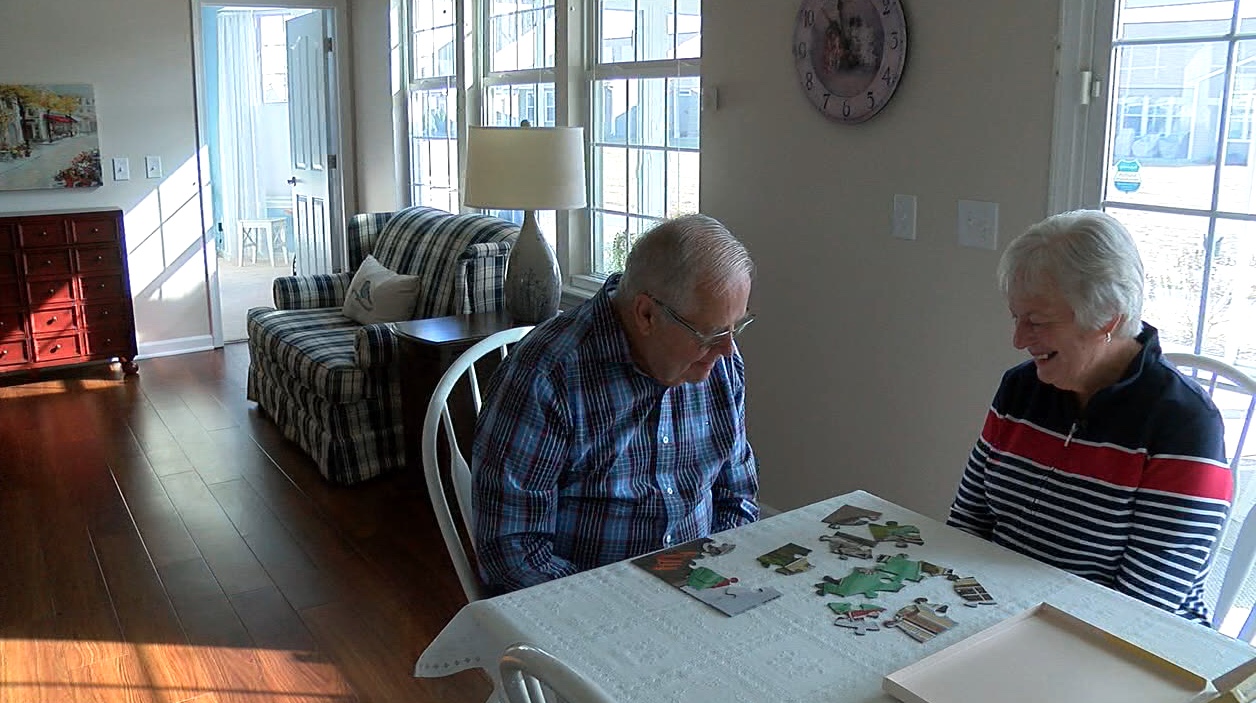FISHERS — A new report is highlighting the realities of Alzheimer’s and dementia on early development and workforce shortages.
On Tuesday, the Alzheimer’s Association released its 2022 Alzheimer’s Disease Facts and Figures report.
“Sometimes when we see this annual report, the data can feel so daunting, but we have to remember that hope and have to remember that there are resources and services here to help,” the Alzheimer’s Association of Greater Indiana Executive Director Natalie Sutton said.
When it comes to detailing a dementia care workforce shortage, data in the report shows both Indiana and areas across the country are experiencing a dire need.
Part of a release reads: “According to the report, there are currently 66 geriatricians in Indiana. By 2050, the state will need 299 geriatricians to serve 10% of those 65 and older – a 353% increase.
In 2018, there were approximately 43,640 home health and personal care aides in Indiana. To meet the growing demand for these services, by 2028, the state will need 59,990 home health aides – a 37.5% increase. The report states that these aides and other direct care workers often lack adequate dementia training, receive low wages and experience high turnover rates.”
Likewise, another special report “More than Normal Aging: Understanding Mild Cognitive Impairment (MCI)” spoke to the lack of understanding when it comes to identifying and diagnosing Mild Cognitive Impairment (MCI).
According to the report, some 12-18% of Americans over the age of 60 have MCI, but the association said 82% of Americans “know very little or are not familiar with MCI.”
“MCI can actually identify what is or can be a precursor to Alzheimer’s disease or other forms of dementia,” Sutton said.
She adds early diagnosis can help reduce healthcare and bring the opportunity for new treatments.
Dee and Bob Husselbee know MCI all too well. A decade ago, the Fishers couple learned Bob had MCI.
“Some days are smooth sailing and some days are rough water,” Dee said.
She is her husband’s caregiver.
Bob’s MCI diagnosis gave him years, Dee said he may not have had without it. It also provided them the opportunity to enroll in a medical trial.
“It’s not the end right there, you can still enjoy life,” Dee said.
Today, Bob is living with late-stage Alzheimer’s.
“When you get that early recognition and early intervention, I just felt that we were on the right track,” Dee said.
-

High-stakes Peach Bowl between Indiana and Oregon tonight
The College Football Playoff semifinal at the Peach Bowl is a celebration of the Big Ten's strength with No. 1-seed Indiana facing No. 5-seed Oregon.
Protest in downtown Indy demands justice for Renee Nicole Good
From Minneapolis to Indianapolis, crowds on Monument Circle had a clear message Thursday night: they’d like to see justice Renee Nicole Good and ICE off our streets.
Pacers beat Hornets 114-112 to end 13-game skid, give Carlisle 1,000th win
A 114-112 win over the Charlotte Hornets on Thursday night that snapped the Pacers' 13-game skid and finally gave coach Rick Carlisle his 1,000th career win.
GM Ballard plans to spend offseason finding solutions to Colts late-season woes
Instead, Ballard said he intends to spend this offseason finding solutions for Indy's continual late-season failures.





